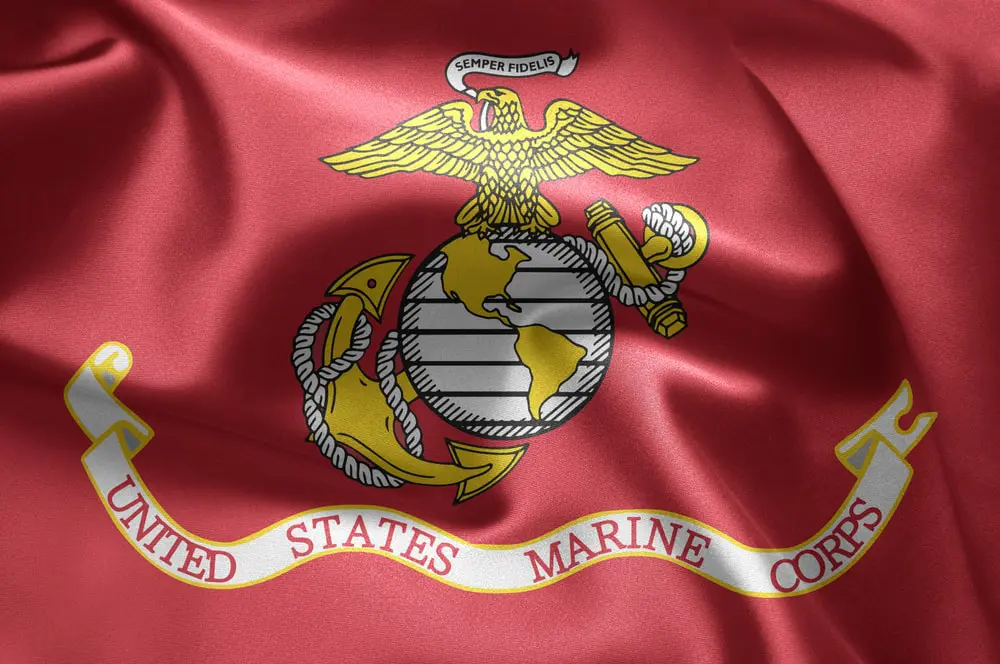Last Updated on January 11, 2025 by Dave Schoenbeck
I’ve always admired the United States Marine Corps. My father served during the Korean conflict, so our household was highly influenced by military leadership principles growing up. When I read about the Marine Corps’s leadership principles in the past, I noticed a considerable overlap between military leadership qualities and the qualities we should expect from our business leaders. If you’re a manager, business owner, or employee looking to advance in the workplace, these principles can help you succeed.

What Are the 14 Marine Corps Leadership Traits?
The Marines use an acronym to help them remember the 14 leadership traits they strive to exhibit: JJDIDTIEBUCKLE. It stands for justice, judgment, dependability, initiative, decisiveness, tact, integrity, endurance, bearing, unselfishness, courage, knowledge, loyalty, and enthusiasm.
While the Marine Corps leadership principles can be helpful to work towards in everyday life, they’re beneficial in the workplace. Here are a few ways you can manifest these qualities in your leadership style for the betterment of yourself and your team:
- Justice: The first of the Marine Corps leadership principles is justice. Know the rules, obey them, and enforce them fairly. This is the only way to maintain order without causing resentment.
- Judgment: Sound judgment is essential for employees at every ladder rung, especially at the top.
- Dependability: Your team must be able to trust you. A leader must show up and do the work consistently to be taken seriously.
- Initiative: Strong leaders take the initiative. You’ll always be a follower if you wait for someone else to act.
- Decisiveness: A leader must be able to make decisions. You’re steering the ship: your team needs to trust that you know where you’re going.
- Tact: A leader must occasionally deliver bad news or unpleasant feedback. It is crucial to handle these situations tactfully, even when tensions are high.
- Integrity goes hand in hand with dependability, but a leader must set a good example. If you live with integrity, your team will trust you to make sound decisions.
- Endurance: The leader’s job is to keep going despite the dire situation. Leading is tiring work, but you must persist. There are no time-outs in business.
- Bearing: Hold your head high and exude confidence. Your team will be able to detect your physical and proverbial poise.
- Unselfishness: Your team will only thrive if you are unselfish. Leaders must be generous with their time, patience, and resources.
- Courage: Leadership often requires difficult decisions and quick pivots when unforeseen obstacles arise. This requires more than a bit of bravery.
- Knowledge: To lead, you’ve got to know your stuff. It would be best if you were the absolute expert on your job, team, and company’s goals.
- Loyalty: A good leader must be loyal not only to the company but also to their team.
- Enthusiasm: The last of the Marine Corps leadership principles is one of the most important. If a leader is enthusiastic about their work, the energy is contagious. The best way to boost team morale is to lead by example.
These 14 Marine Corps leadership principles might have been designed to encourage excellence in our men and women in uniform, but they can (and should) be applied to anyone in a leadership role. If we strive for greatness in our workplace, we can create a healthy, productive corporate culture that will endure.
Business leaders can learn much from the Marine Corps leadership principles, but incorporating them into your leadership style can be difficult. A business coach can help you make a seamless transition. Sign up for a complimentary coaching session, and let’s talk about implementing elements of the Marine Corps leadership philosophy into your business.
Coach Dave
- If You Are Considering Starting a Business, Read the Book The E-Myth Revisited First - October 16, 2025
- Here’s a Must-Read Book: The Four Disciplines of Execution - October 9, 2025
- Don’t Procrastinate: It’s Time to Do Company Succession Planning - October 2, 2025


